




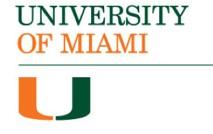
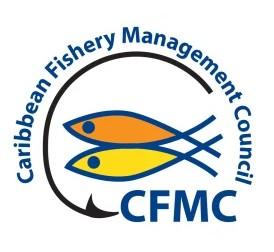
Caribbean Fisheries Management Council, April 2025
NOAA Fisheries
Prepared By:
Brent Stoffle, NOAA SEFSC
Suzana Blake, University of Miami
Katie Geddes, University of Miami
Molly Graham, NOAA Affiliate


Jannette Ramos Garcia, Marine Extension Agent, UPR Sea Grant College Program
Outreach and Education Chair, Caribbean Fishery Management Council
Wilson G. Santiago Soler, Puerto Rico Fisheries Liaison Officer, Caribbean Fisheries Management Council
Nicole Greaux,
St. Thomas Fishery Liaison Officer, Caribbean Fisheries Management Council
Presentation Overview
• Importance
• Methodology
• Fisheries Context
• Project Update
• Significance
• Looking Forward
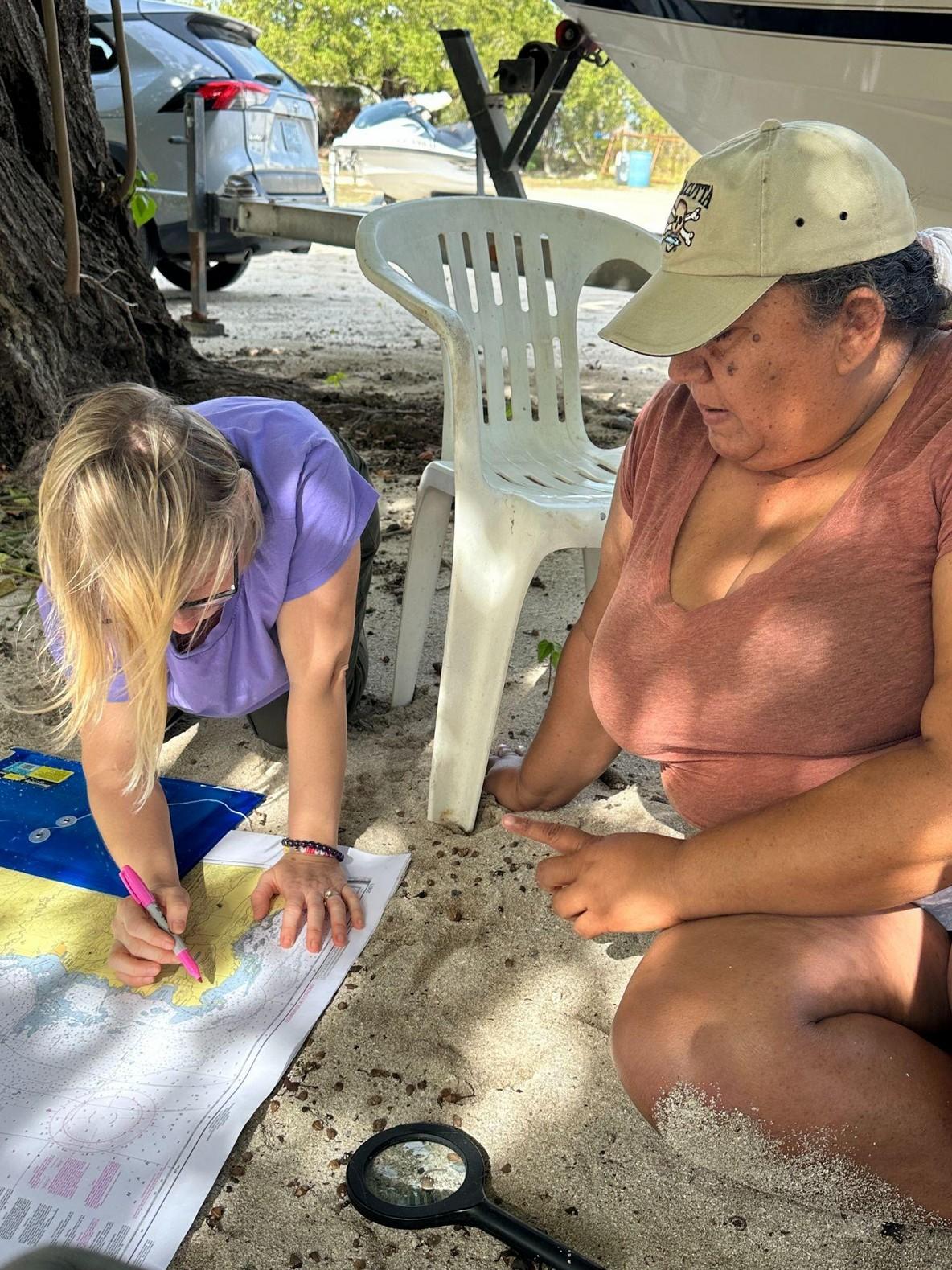
• At NOAA we use oral histories to
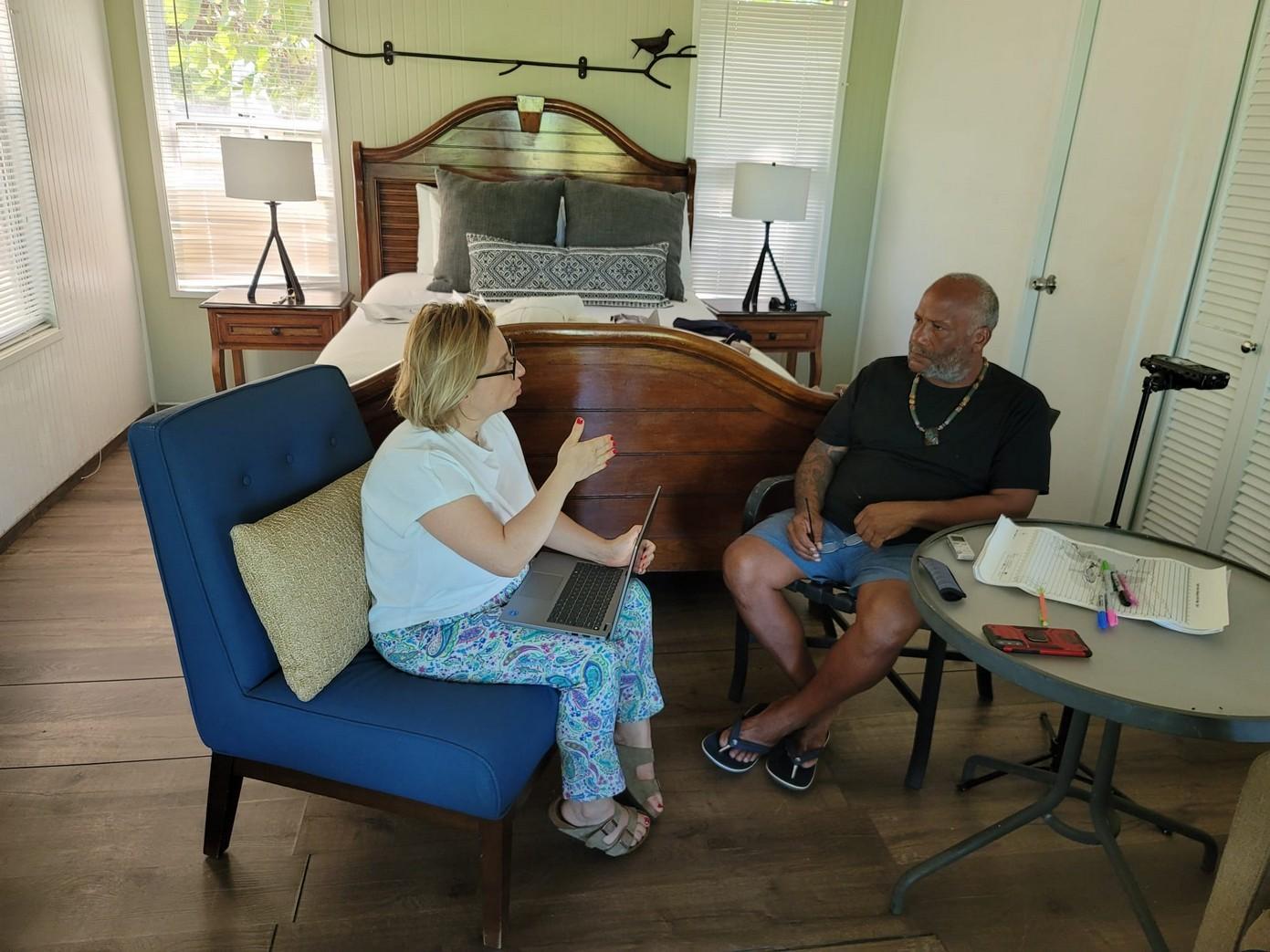
• Document the human experience as it relates to the changing social and physical environment,, through firsthand oral history accounts.
• Contribute to NOAA’s Mission of “Science, Service, and Stewardship” by creating, compiling, archiving and sharing the experiences of stakeholders, scientists and others.
• Learn how that even today individuals continue the tradition of passing or sharing knowledge through storytelling regarding lessons learned from and incorporated with previous experiences
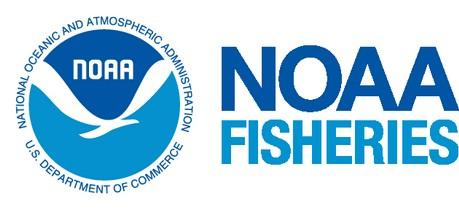

1. Capturing Personal Narratives – Oral histories allow researchers to gather detailed, firsthand experiences that may not be recorded in official documents or historical records.
2. Preserving Cultural and Community Knowledge – Many cultures pass down knowledge through storytelling, and oral histories help preserve traditions, values, and perspectives that might otherwise be lost.
3. Filling Gaps in Historical Records – Traditional historical sources often reflect dominant narratives. Oral histories provide alternative perspectives, helping to create a more comprehensive understanding of the past.
4. Enhancing Qualitative Research – Social science research often seeks to understand human experiences, emotions, and motivations. Oral histories provide deep, qualitative insights that structured surveys or quantitative data may miss.
5. Empowering Participants – Oral history methodology gives voice to individuals and communities, allowing them to share their experiences in their own words rather than being interpreted by external analysts.
6. Interdisciplinary Relevance – Oral histories are widely used in anthropology, sociology, history, and political science, making them a versatile and respected methodology.
7. Reflexivity and Interpretation – Oral histories allow researchers to analyze how individuals construct their identities and interpret historical events, providing a deeper understanding of social change.
8. Flexibility and Accessibility – Conducting oral histories does not always require extensive technology or funding, making it an accessible methodology for researchers studying various populations.


• NOAA Voices Database
• 2600 oral histories
• Variety of Respondents
• Its Mission
• Applicability for Research, Collaborate with other kinds of data – ground truthing
• Involvement in Fisheries Management
– Development of policy based on collaborative efforts between scientists, managers, and locally affected people
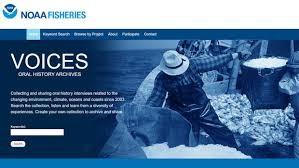
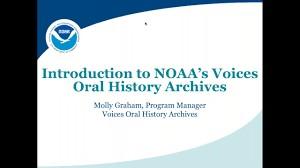


National Standard 1 (50 CFR §600.310): Requires optimum yield determinations that take into account economic and social factors
● National Standard 4 (50 CFR §600.325): Requires fair and equitable allocation of fishing privileges with consideration of economic and social consequences
● National Standard 5 (50 CFR §600.330): Requires consideration of efficiency in the utilization of fishery resources
● National Standard 7 (50 CFR §600.340): Requires minimization of costs and avoidance of unnecessary duplication
● National Standard 8 (50 CFR §600.345): Requires consideration of impacts on fishing communities to minimize adverse economic effects
● National Standard 9 (50 CFR §600.350): Requires economic and social impacts of bycatch minimization measures to be considered
● National Standard 10 (50 CFR §600.355) directs that "Conservation and management measures shall, to the extent practicable, promote the safety of human life at sea."
● Section 303(a)(5) of MSA (16 U.S.C. §1881c(c)(3)): Requires research on "the social, cultural, and economic relationships among fishing vessel owners, crew, United States fish processors, associated shoreside labor, and other individuals and entities related to the fishery."
● Section 303(a)(9) of MSA (16 U.S.C. §1853(a)(9), implemented in 50 CFR §600.815): Requires Fishery Impact Statements that:
○ Assess likely effects of conservation and management measures on participants in the fisheries
○ Analyze likely effects on fishing communities
○ Describe potential impacts on participants' safety at sea
○ Evaluate extent to which fishery resources will be used under the measures
○ Include historical and cultural framework relevant to the fishery
● Section 303A (16 U.S.C. §1853a, implemented in 50 CFR §600.1310): Limited access privilege programs require economic and social impacts analysis


Regulatory Flexibility Act (RFA) (5 U.S.C. §§601-612, implemented in 50 CFR §605):
● Requires analysis of economic impacts on small entities, including small businesses, small organizations, and small governmental jurisdictions
National Environmental Policy Act (NEPA) (42 U.S.C. §§4321-4370h, implemented in 50 CFR §700 series and NOAA Administrative Order 216-6A):
● Requires assessment of social and economic effects as part of the human environment
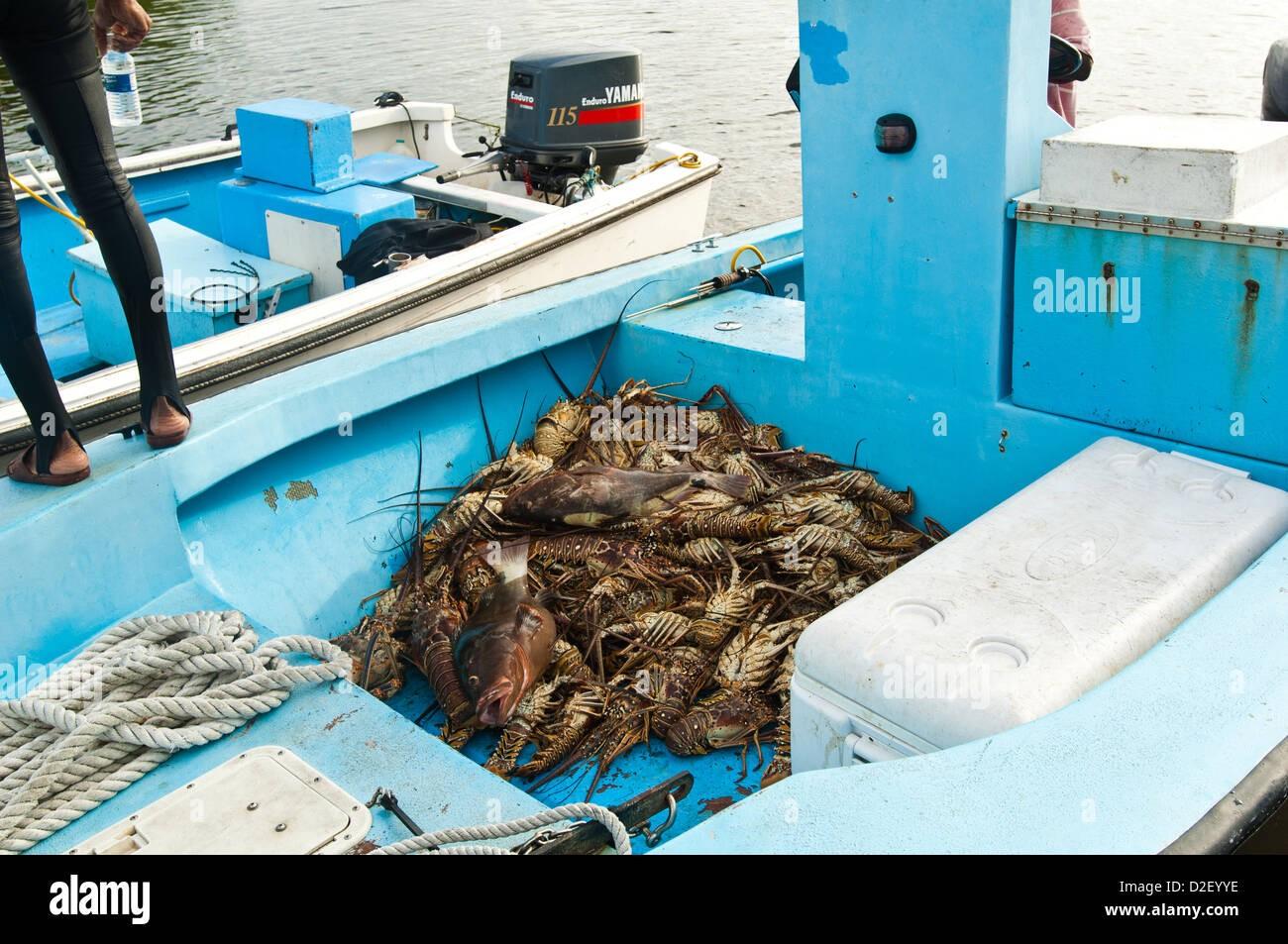


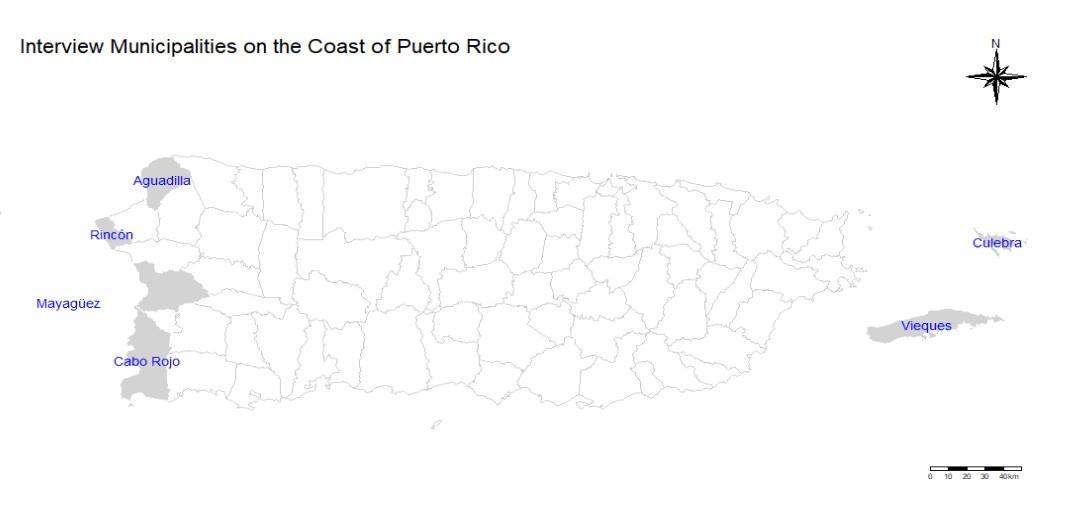
Oral Histories in the US Caribbean
40 Oral Histories
• St. Thomas (9)
• West Coast of Puerto Rico (31)
St. Croix and East Coast of Puerto Rico - in planning.
• Fishermen
• Commercial
• Recreational (For Hire)
• Subsistence
• Government Employees
• Related to Fisheries
• Related to Marine and Terrestrial Resource



• Changes in Fishing Practices and Technology
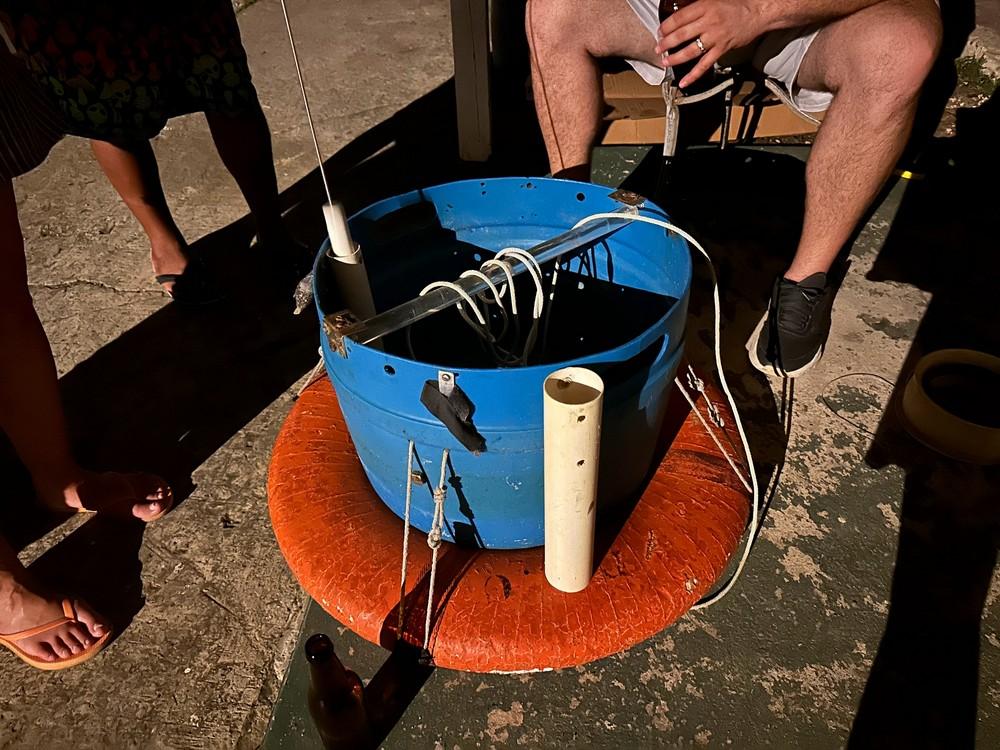
• Impact of Natural Disasters and Environmental Changes
• Economic Viability and Sustainability of the Fishing Industry

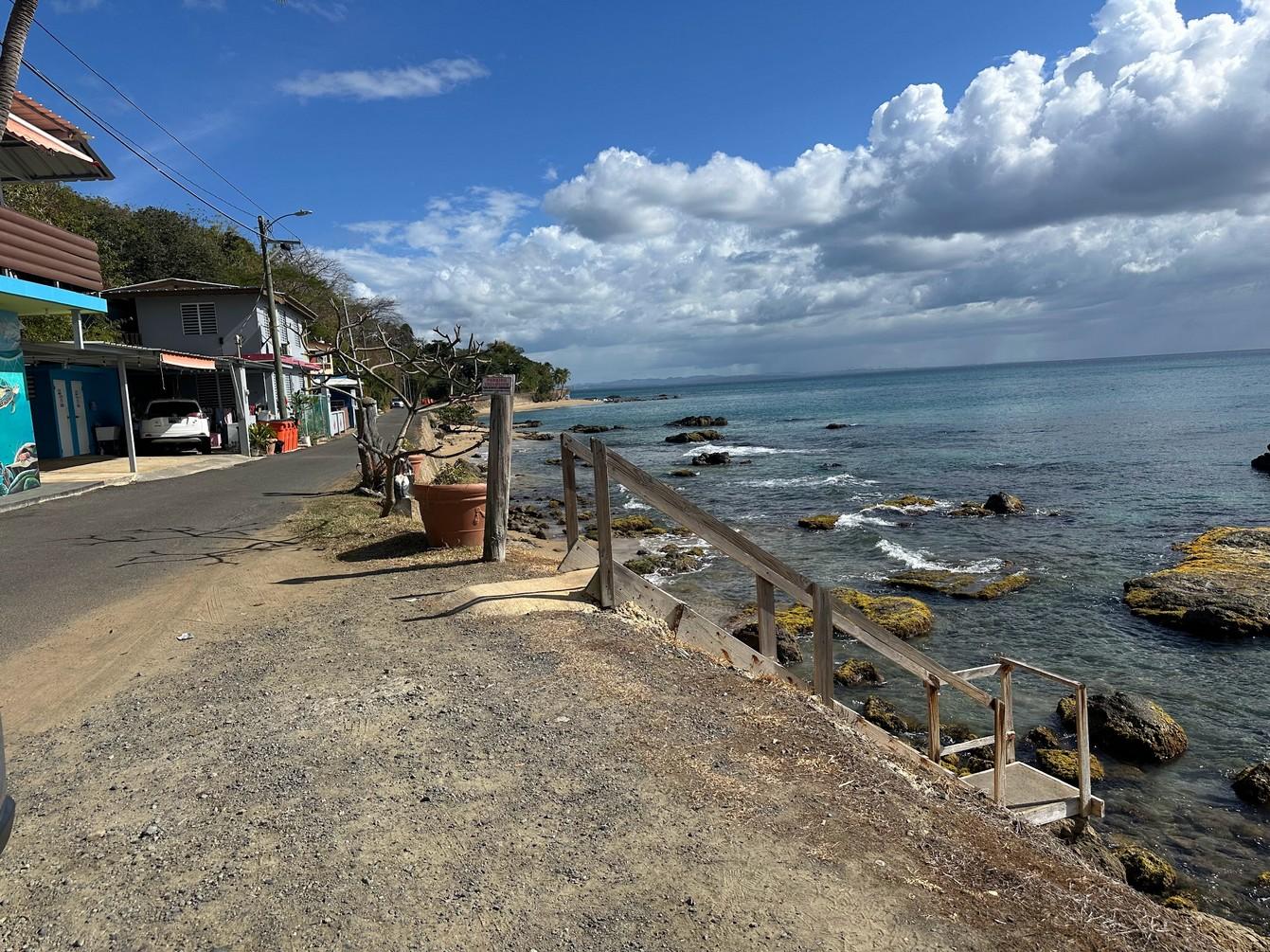



• Tradition and Knowledge Transmission
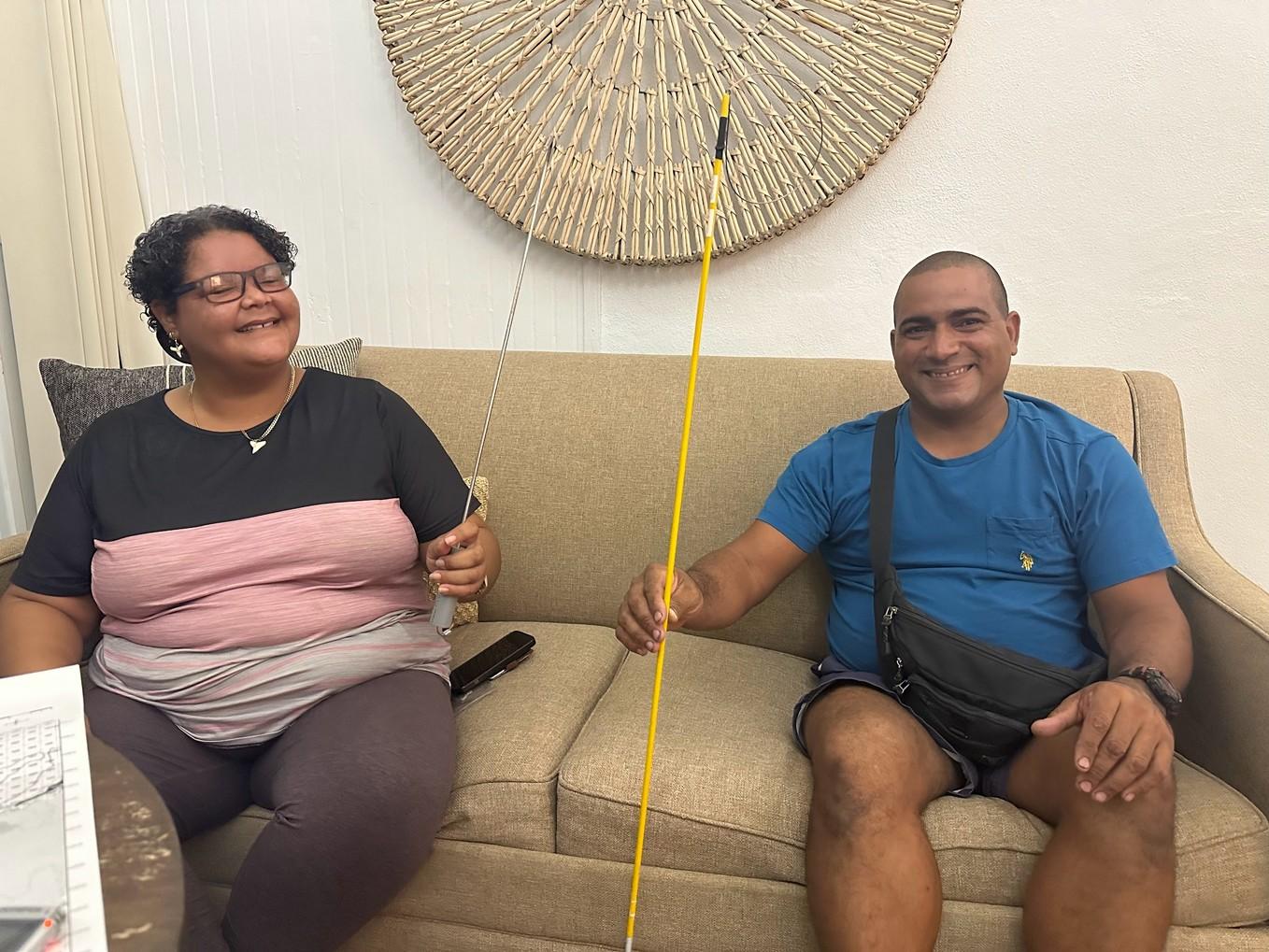
• Government Regulations, Enforcement and Fisher Interactions
• The Role of Women
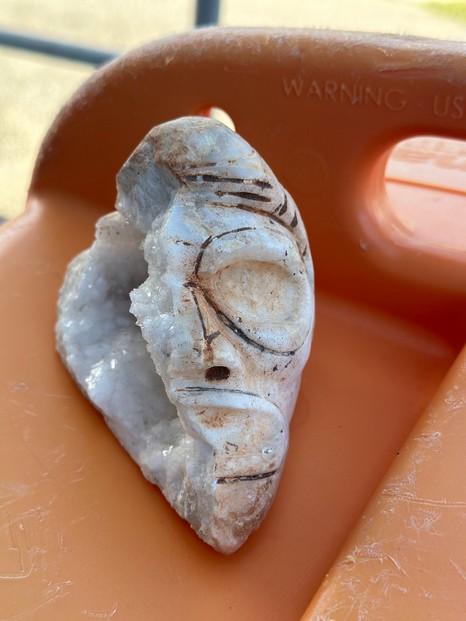
• Impact of Tourism and Coastal Development
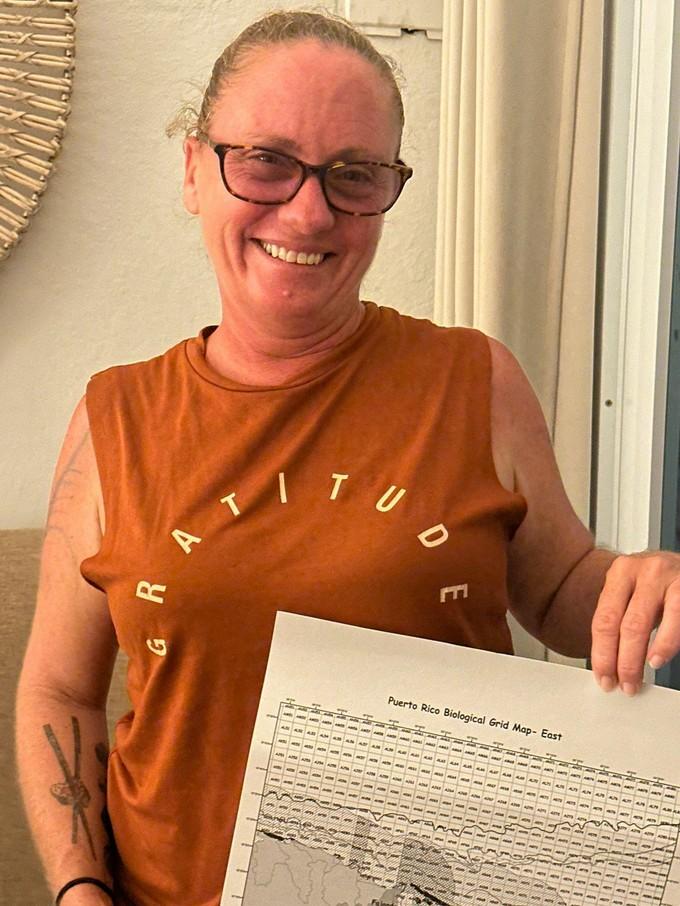

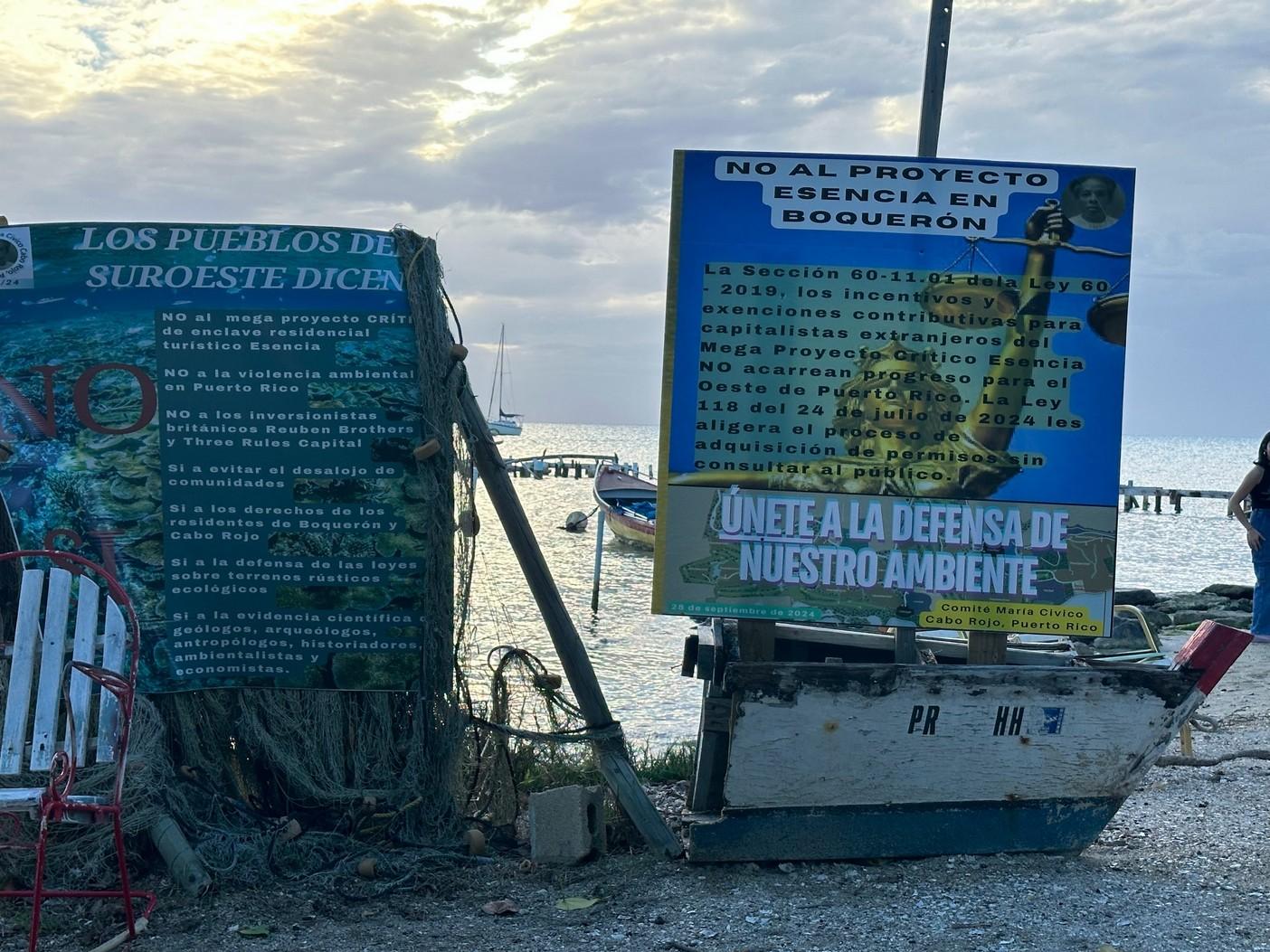


• Notable shifts in species abundance and distribution, particularly for groupers, snappers, and conch.
• Changes in habitat conditions, including reef health and nearshore environments.
• Variations in spawning periods and locations observed over time.


• West Coast PR: Long term impacts of catastrophic storms on the fishing infrastructure
• Vieques: Fishermen report challenges related to historical land use impacts and changes in nearshore fishing grounds.
• Culebra: Adoption of community-based initiatives, such as cooperative models and alternative livelihoods.
• St. Thomas: Emphasis on pelagic species and concerns over access to traditional fishing areas.


• Fishermen's long-term observations provide valuable data on ecological changes.
• Incorporating local knowledge can improve the effectiveness of management measures.
• Collaborative approaches can lead to more adaptive and region-specific regulations.


• For Locals Fisheries Research Often Feels One-side
• Oral Histories provide an Opportunity for Collaboration
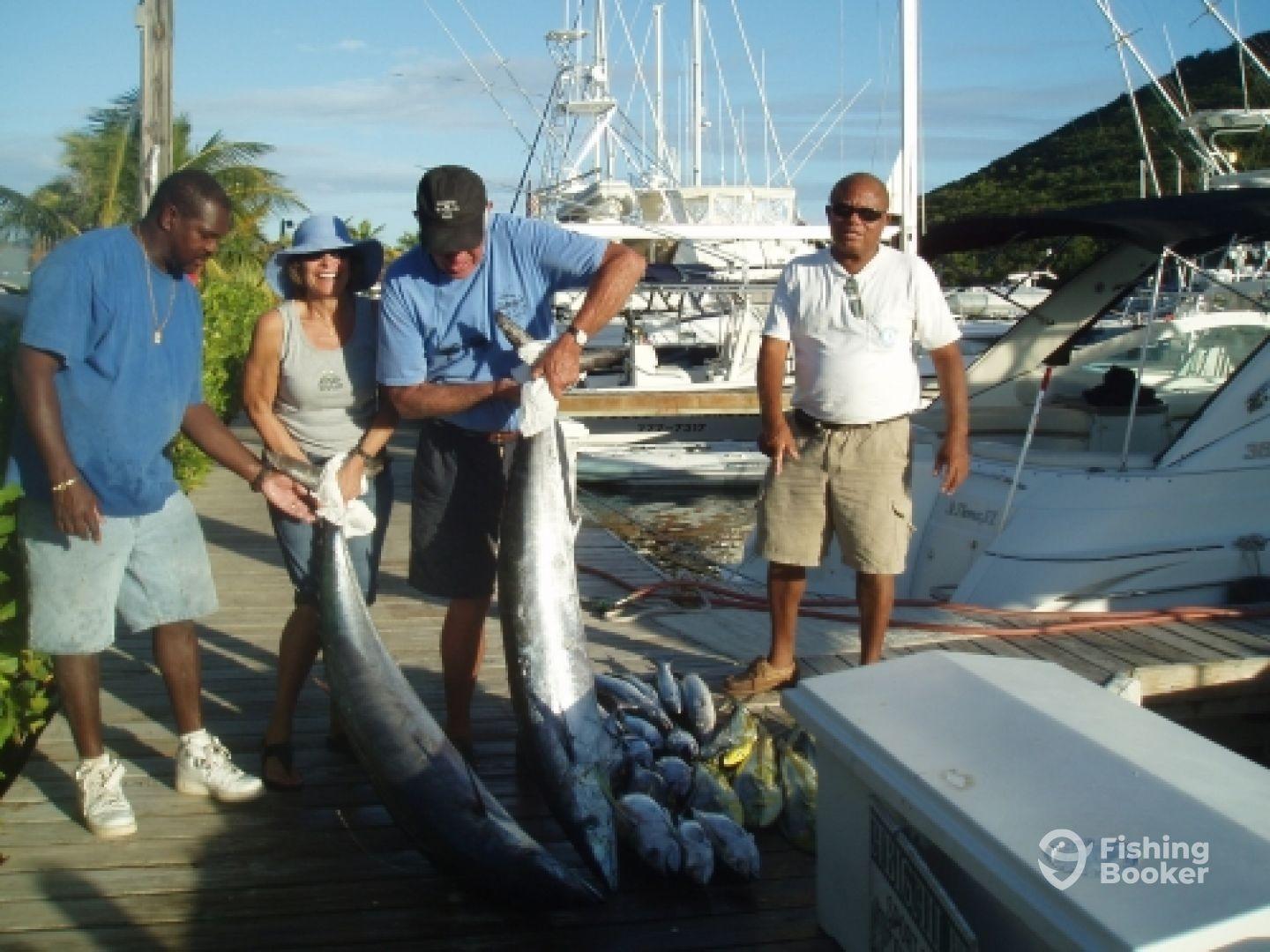
• Red Baily’s OH Interview in November 2024


• Importance for Understanding and Relationship Building
• The Caribbean was virgin territory. When I meet it full of fish, and when I see the danger, what we've done in forty years, look at it down the road, when we have more people, we have more disaster coming in that the land may burn up, the land may do this, save the ocean the best we know how. Together, we can do it. And you, I'm happy to have you because we are fishermen; we don't write, we don't go on stuff. But we are there from years and see what it was, what it is, and potentially what's ahead of us.
• Nicole Greaux (St. Thomas Fishery Liaison) and Red’s Wife…When I spoke to her I asked her how the interview went. She said he was so happy…Happier than he has been in a long time. He said he has been sitting here for years waiting for someone to ask him about his story and what he knows. He said that it made him feel so good that someone cared. Someone who has a reason to listen to him and can use what he said to help the people and fishermen of St Thomas.
• Final Words from Red and the Utility of Oral Histories
• That's what I would like to see that our government, our folks, pay more attention to us


How does this Assist with Stock Assessment
• Provides Longitudinal Perspective on Stock Health
• Provides Information on Perturbations Impacting Fishing and Fish Stocks.
• Ground truths the Quantitative Data
How Does this Inform Ecosystem Based Management
• Incorporates LEK/TEK into Decision Making
What Impact Does this Have for Amendment Development
• Provides Updated Information on
● Cumulative Impacts
● Description of Fishery
What Do the Current Administrative Changes Mean for NOAA Social Science in Caribbean Fisheries Management

